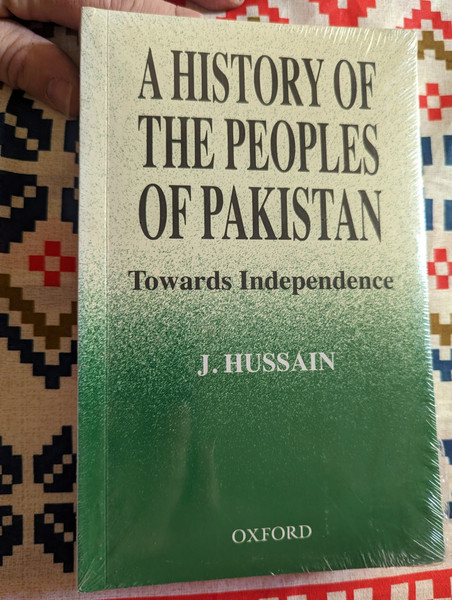Description
The Class Structure of Pakistan
Product Information
- ISBN-13: 9780199400126 / 978-0199400126
- ISBN-10: 0199400121
- Author: Taimur Rahman
- Publisher: Oxford University Press Pakistan
- Format: Paperback
- Language: English
- Pages: 328
- Publication Date: October 29, 2021
- Audience: General
Overview
The Class Structure of Pakistan by Taimur Rahman is a groundbreaking analysis of Pakistan’s socio-economic divisions, power hierarchies, and class dynamics. The book examines how historical, political, and economic factors have shaped class relations in the country, offering a Marxist perspective on Pakistan's ruling elites, feudal landlords, industrialists, and working class.
Through detailed historical research and economic analysis, Rahman provides a compelling argument on how wealth, land ownership, and political power are concentrated among a small elite, leaving the working and peasant classes marginalized. The book also highlights the impact of colonialism, capitalism, and globalization on Pakistan’s class system.
This book is essential for readers interested in political economy, sociology, and South Asian studies.
Product Features
✔ Marxist Analysis – A comprehensive class-based study of Pakistan’s economy and society.
✔ Historical and Contemporary Perspective – Traces the evolution of class structures from colonial rule to modern Pakistan.
✔ In-Depth Research – Based on economic data, historical records, and political analysis.
✔ Engaging and Accessible – Written for students, academics, and general readers interested in understanding Pakistan’s socio-economic realities.
Interesting Facts
Pakistan's feudal system remains deeply entrenched, with a few landowning families controlling vast agricultural lands.
Industrialization and urbanization have created a growing middle class and working-class struggles.
Colonial-era economic policies laid the foundation for modern economic inequalities in Pakistan.
The military and business elite continue to play a dominant role in shaping Pakistan’s class structure and governance.
Publisher Details
Published by Oxford University Press Pakistan, this book presents a critical and thought-provoking exploration of class struggles, economic power, and social change in Pakistan.
We Value Your Feedback!
Have you read this book? Share your thoughts on its analysis of Pakistan’s class structure.
Hashtags
#PakistanClassStructure #PoliticalEconomy #MarxistAnalysis #EconomicInequality #Sociology #Feudalism #PakistanEconomy #SouthAsianStudies #OxfordUniversityPress #OUPPakistan

























